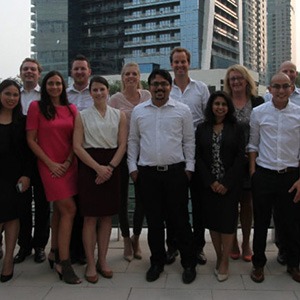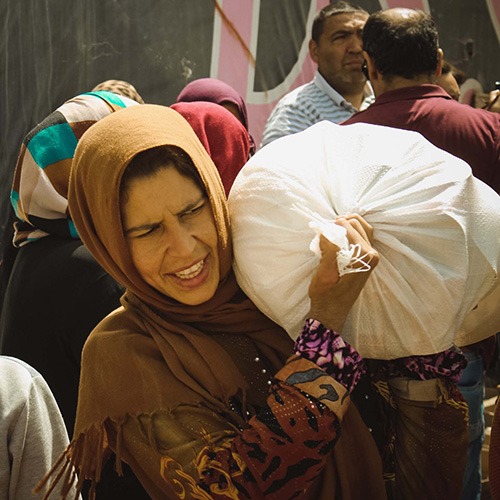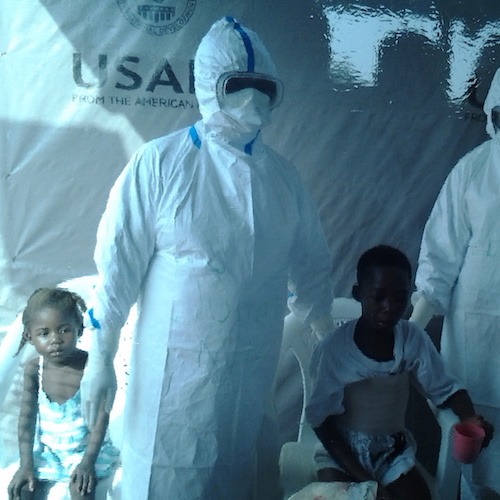World Food Day And The Challenges Of Food Distribution

World Food Day is a chance for change agencies and NGOs to consider, reflect on and improve distributing food to the people who need it most in countries across the world. On 16 October, CTG considers our role is helping partners supply food, and what challenges are faced in the regions that need assistance. In a time where migrant and refugee numbers are higher than ever before, getting food to the people who need it is more important than ever.

We speak to Nadia Kamara, our Country Operations Manager in Sierra Leone, to find out what challenges the region is facing in terms of food distribution.
What is your role regarding food distribution in Sierra Leone?
My role largely entails liaising with the client and managing our fleet management staff. Our team, which comprises admin staff, a fleet supervisor, traffic monitors, mechanics and drivers, is responsible for all of our client’s food deliveries to vulnerable areas in Sierra Leone.
What are some of the challenges getting food to the people who need it in Sierra Leone?
Sierra Leone has a population of approximately six million people with more than half of the population living on less than $2 a day – nearly half the population is food insecure. Deforestation, climate change and land have affected the ability to produce food locally. While rice is the staple food in Sierra Leone, its production has declined tremendously. Rice is imported and subject to price fluctuations and therefore increases insecurity.
During the Ebola outbreak in 2014/15, livelihoods were devastated and our fleet management team supported food delivery all across Sierra Leone. More recently, during the floods and mudslides in Sierra Leone our team were part of the first responders who coordinated and transported food delivery to vulnerable areas. On an ongoing basis, we have worked with the client to tackle malnutrition generally, but more specifically I am proud that we have provided food for people living with HIV and TB who are often ostracised by society and live in an isolated manner.
Today is World Food Day. What are your hopes for your Sierra with regards to food security?
I would like to see a Sierra Leone where child deaths that are as a result of malnutrition is no longer the greatest cause of child mortality. I hope that our work with development partners will continue to make an impact to the lives of ordinary Sierra Leoneans living in dire poverty.

Mohammaf Gal Ghafoorzai, one of our staff working in Afghanistan, shares his views this World Food Day on what it’s like to work in food distribution.
What are some of the challenges getting food to the people who need it in Afghanistan?
Security is the main constraint and challenge, as most of our operations aim to cover food-insecure areas. Due to conflict and war, we face serious problems. Furthermore, cultural sensitivities in Afghanistan remain an issue, as suffering pregnant and lactating women are mostly not allowed to come to clinics by themselves.
I believe CTG’s hard work will help us build up a hunger-free, more developed society
What are you responsibilities, and what kind of food is distributed?
Our core responsibility is to monitor the food distribution process and ensure that food reaches beneficiaries (the most vulnerable population), as well as stick to partner and client policies and procedures in the areas. There are different food packages for different programmes, but the provided food consists mainly of fortified wheat flour, pulses, fortified cooking oil and iodised salt.
What positive effects does proper food distribution have on communities?
The programme is designed in such a way that it has direct and indirect impact on food insecurity conditions. Our work helps implement a variety of projects, including rehabilitation of roads, bridges, protection walls and water shields, as well as vocational training courses, school feeding, and assest creation, which helps generate employment in remote areas.
Do you have any success stories about getting food to those in need that you would like to share with us?
Once, a client dispatched food to one of the most insecure destinations for refugees, and along the way I was diverted by insurgents. Even the truck drivers were detained. One of our team’s responsibilities is to convoy the fleet, so my team and I had to work together to find out where the food was diverted to, identify who had taken it, and involve the community leaders in a face-to-face negotiation process. We managed to convince the insurgent group that the food is for the most vulnerable households who are living with hunger, and they released the food. We were able to ensure that it reached its destination.
What are your hopes for your country with regards to food security?
To live in a hunger-free society where no one suffers, and can be part of a developed and prosperous society.



